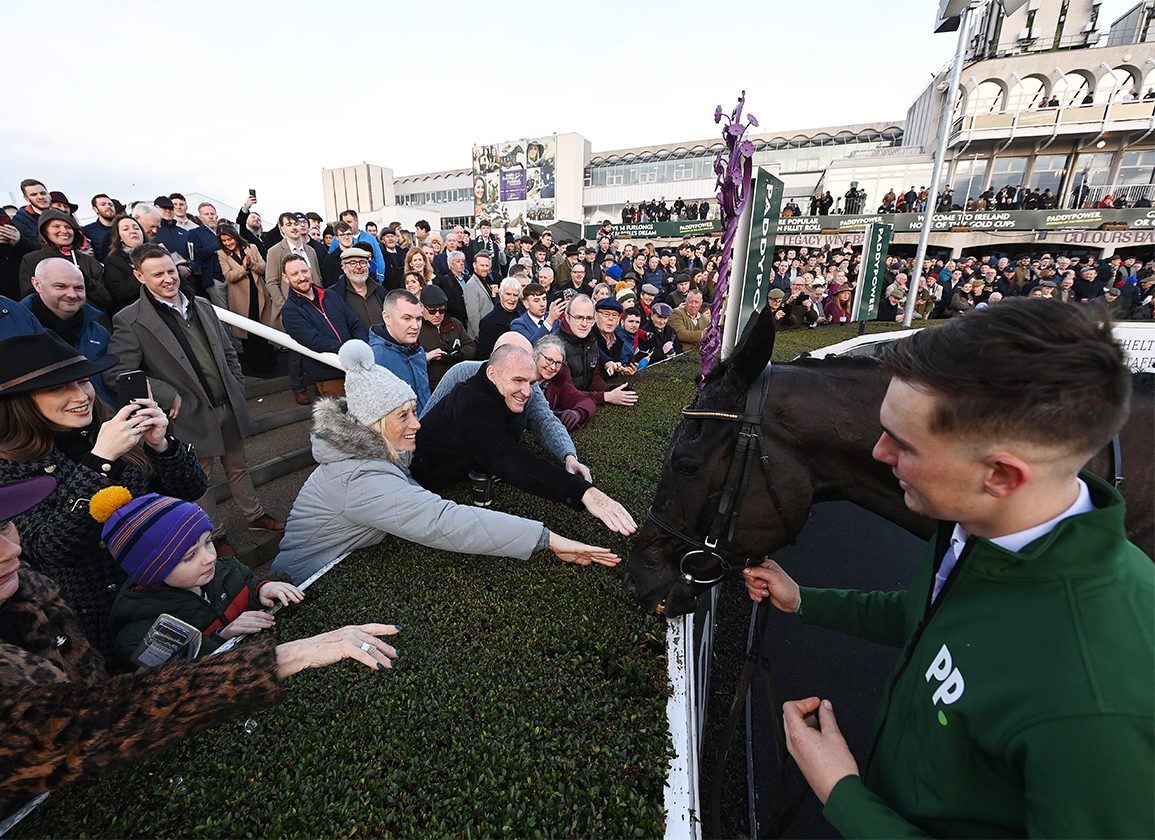By Paul Hayward
The growing supremacy of the Willie Mullins stable in National Hunt racing begs the question: is it damaging anybody or anything?
Dominance is the raison d'etre of elite sport. When Rafa Nadal was winning 14 French Open tennis titles it never entered his head that what he was doing might be harmful to the game. Manchester City won't be thinking that five Premier League title wins in six seasons is quite enough, thank you very much, and that to make it six in seven would be detrimental. If you're preaching against reigns and dynasties, you might as well chastise the tide for going in and out.
But the issue raised by the Mullins operation's brilliant scouting and training of jump racers isn't about his right to annex the sport. The small flares of disquiet relate more to the effect it might have on public enjoyment, other trainers and owners, betting turnover and the sport's profile at a time when National Hunt racing is bedevilled by small fields and worrying economic indicators.
Let's lay out the stats.
- Mullins is even money to train more winners at this year's Cheltenham Festival than Great Britain (one trainer versus a whole country)
- He has 14 ante-post favourites for the 28 races at next month's meeting.
- At the recent Dublin Racing Festival he won all eight Grade 1 races and saddled 29 of the 48 Grade 1 runners
- Ten of the last 13 Cheltenham Festival leading trainer's titles have made their way back to his base in County Carlow
- Entries for this year's Supreme, Ballymore, Albert Bartlett and Triumph revealed a total of 80 names from the Mullins yard
Nobody disputes the skill (and wealth) required to spot, buy, train and deliver horses capable of overwhelming Henry de Bromhead, Nicky Henderson, Paul Nicholls and Gordon Elliott. Henderson, it should be said, has the best horse in National Hunt training – Constitution Hill. The Mullins numbers are powerless to negate that reality. The hard part is knowing when success becomes weaponised – and starts to do harm.
Dissenting voices are few. Richard Johnson, the former champion jockey, is an admirer of Mullins, but sounded an ominous note in a recent discussion with BoyleSports bookmakers. Johnson said: “It definitely is not good for racing. It is not good for competitive sport. When you are looking at the racing at Dublin last weekend people were saying Irish racing is so strong. It's not Irish racing. It's Willie Mullins who is so strong.”
Johnson's belief that Mullins is distorting the Anglo-Irish balance of power is contradicted by this year's Grand National entries. Astonishingly: 61 of the 94 are trained in Ireland (54 was the previous high).
Another part of Johnson's lament is the repetitive nature of the storyline, which you could also sometimes diagnose in Flat racing, with Aidan O'Brien and Coolmore. “Looking at more of the same isn't great and doesn't encourage new people into our sport,” Johnson said.
Is this true? Plenty on the other side point to Tiger Woods and Usain Bolt and ask whether interest dipped when golf and Olympics sprinting felt like pageants.
In his Daily Mail column at the weekend, ITV Racing's Ed Chamberlin wrote: “Of course, true sport relies on competition but does the might of Mullins threaten to ruin Cheltenham? Not for one second. The archetypal racegoer to Cheltenham, or ITV viewer, simply wants a good time and a bet, especially an each-way one.”
Evidence to prove an exodus by punters put-off by odds-on favourites constantly 'going in' for Mullins would be hard to find, given the other possible socio-economic explanations for betting turnover fluctuations. And so far rival trainers are understandably wary of graffitiing the Mullins legend with accusations of unfairness.
Mullins is only six short of a century of Cheltenham Festival winners and we can expect the 100 to be reached next month at a course where, in 2022, he won a record 10 of the 28 races. Having 29 of the 86 entries for the Baring Bingham Novices' Hurdle is only one illustration of his power to swarm the biggest targets.
In football and other team sports, when a trophy is being raised and the tickertape is falling, a journalistic reflex prompts us to ask: is this the start of a dynasty, should everyone else panic, is a new age of dominance upon us? With Liverpool in the 1970s and 80s – yes. With Manchester United subsequently – yes. With Manchester City now – yes.
Often dominance entrances us. Sometimes it suggests imbalance, repetition, staleness, even injustice, if money is the real dominating force. The shadow debate in jump racing around the Mullins numbers hasn't shed much light on the effect on other good yards of owners taking the easy option of sending horses to Closutton, or on the polarisation of wealth in National Hunt racing, or whether racegoers and punters care who saddled the winner.
One thing, we know: being too polite to even discuss those aspects is a quiet form of harm.
Not a subscriber? Click here to sign up for the daily PDF or alerts.






